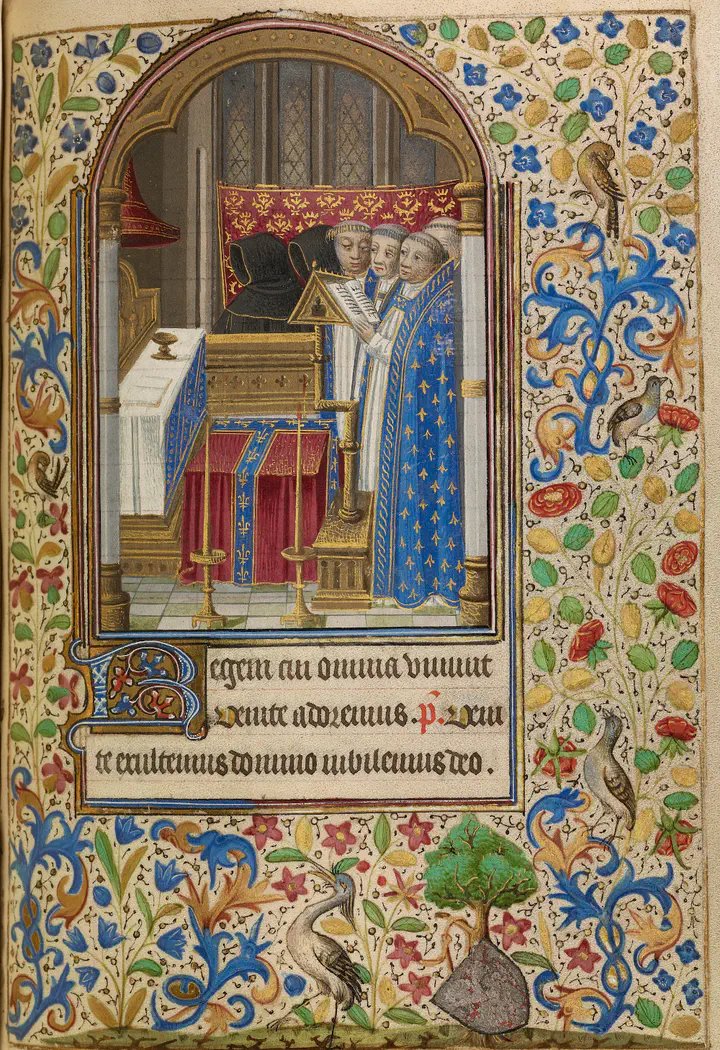Indulgence
 Master of Jacques of Luxembourg (French, active about 1460 - 1470) Office of the Dead, about 1466–1470, Tempera colors, gold leaf, silver leaf, and ink Leaf: 16.4 × 11.4 cm (6 7/16 × 4 1/2 in.), Ms. Ludwig IX 11 (83.ML.107), fol. 104 The J. Paul Getty Museum, Los Angeles, Ms. Ludwig IX 11, fol. 104
Master of Jacques of Luxembourg (French, active about 1460 - 1470) Office of the Dead, about 1466–1470, Tempera colors, gold leaf, silver leaf, and ink Leaf: 16.4 × 11.4 cm (6 7/16 × 4 1/2 in.), Ms. Ludwig IX 11 (83.ML.107), fol. 104 The J. Paul Getty Museum, Los Angeles, Ms. Ludwig IX 11, fol. 104What are Indulgences?
“An indulgence is a remission before God of the temporal punishment due to sins whose guilt has already been forgiven, which the faithful Christian who is duly disposed gains under certain defined conditions through the Church’s help when, as a minister of redemption, she dispenses and applies with authority the treasury of the satisfactions won by Christ and the saints” (Indulgentarium Doctrina 1).
Sins incur temporal and eternal punishment. The Sacrament of Penance is there to remove eternal punishment. We work on the remains of our sins and even others’ sins through good works: prayers, fasting, almsgiving.
Good works can satisfy for sins and acrue merit. The satisfaction for sins from our good works can be applied to ourselves or to the souls in purgatory. The merit sticks with the person doing the good work. I remember being taught that partial indulgences double the merit for the work—I can’t seem to find a reference to back that up. The merit is proportional to the charity with which the work is done.
It’s all a bit abstract. I think of it as boosters for good works with the bonus credits coming from the Church’s treasury of merits, chiefly the superabundant merits of Jesus.
You might like this article Myths about Indulgences from Catholic.com.
The Enchridion (handbook) of Indulgences, 1999
Part 29. For the Faithful Departed
§2 A partial indulgence, applicable only to the souls in purgatory, is granted to the faithful who
1° devoutly visit a cemetery and at least mentally pray for the dead;
2° devoutly recite lauds or vespers from the Office of the Dead or the prayer Eternal rest.
Eternal rest grant unto them, O Lord, and let perpetual light shine upon them. May they rest in peace.
Requiem aeternam dona eis Domine, et lux perpetua luceat eis. Requiescant in pace.
- Enchiridion of Indulgences given by the 1968 Decree of the Sacred Apostolic Penitentiary, 4th revision 1999.